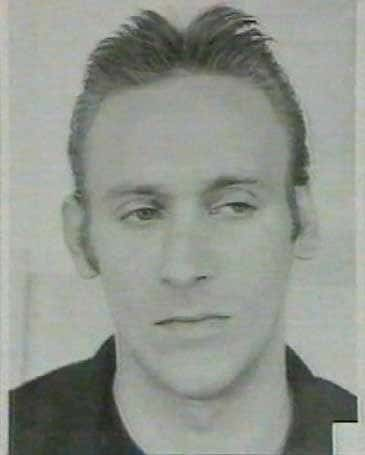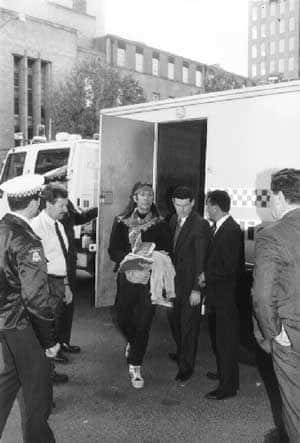'Shantaram': The extraordinary and true adventures of Gregory David Roberts that inspired the Apple TV+ show and book

It's a miracle 'Shantaram' was ever written or that its author, Gregory David Roberts, lived through the many misadventures that feature, thinly disguised, in his book. Nearly two decades later, that also saw an aborted film project, the book will finally be adapted as an Apple TV+ series, starring Charlie Hunnam as 'Shantaram'.
Just like the book's chameleon protagonist (with a bit of a white savior, hero complex), whose real name is never revealed, Gregory David Roberts is a bit of a mystery figure. Born in 1952 in Melbourne, Australia, as "Gregory John Peter Smith" to a family of Fabian Socialists, he grew up in a rough, working-class neighborhood.
On his website and in his interviews, he speaks little of his childhood. But being a rebel was part of his DNA. He left school early to marry a girl on his 18th birthday. But he kept up with his studies by going to night school while working a factory job by day.
After he came first in his exams in the state of Victoria, he enrolled as a student of philosophy at Melbourne University, an experience that has profoundly influenced his novels. For instance, he has a fondness for "allegorical referencing", weaving in themes around exile from the Bible, and Dante's Inferno in 'Shantaram'.
As a student, he was also part of several anarchist and leftist causes. Between 1969 and 1975, he was the founder member of the Anarchist People’s Liberation Army (1969); union activist with the Builders Labourers Federation (1972); founder member of the Australian Independence Movement - United Front Against Fascism (1973); student leader, Melbourne University, occupation of University Council Chambers (1974) and Student Leader, Black Week Aboriginal Activism Movement (1975).
But in 1976, it all started to go wrong. His marriage broke up and his wife won full custody of their five-year-old daughter. Speaking about this period in his life, he said: “I was too young, too immature to handle the problem. I fell apart.”
As he spiraled into depression, he was introduced to heroin and so began his life as an addict. To fund his habit, he started with petty theft and graduated to armed robberies, using a fake plastic gun. He earned the moniker the "Gentleman Bandit" since he wore a three-piece suit and was unfailingly polite during his stick-ups, greeting his victims with a "Good morning” or a “Good afternoon” before robbing them.
He was captured and imprisoned in 1978 and sentenced to 19 years in prison. Two years later, in 1980, Roberts escaped from the HM Prison Pentridge in Coburg, Victoria, and became a 'Most Wanted' man in Australia.

On the run, he was helped by the motorcycle gang, BLF Union, and other revolutionaries to escape to New Zealand. There he got involved in the conservation campaign to save a sacred Maori mountain, Mount Maungahiha, in 1981. After being put into custody twice, escaping both times, he arrived in India with a fake passport under the name "Lindsay", a New Zealander.
In the beginning, for six months, he hid in a remote village in the Indian state of Maharashtra and learned to speak the local language, Marathi. It was here he was renamed "Shantaram" -- Man of God's Peace. When he returned to Mumbai, then called Bombay, he lived in the slums, establishing a medical clinic there.
It wasn't long before he was drawn towards danger again, this time in the form of a mentor, who was a mafia boss and part of Bombay's notorious underworld. Soon, he was working as a counterfeiter (mainly fake passports and currency), gold smuggler and a mafia street soldier.
His illegal activities meant he spent three weeks in prison and served a longer three-month sentence in Bombay's infamous Arthur Road prison, where he was brutally tortured by the police. In a 2004 interview, he spoke about how, when he was being flogged by bamboo canes and thought he was going to drown in his own blood, "a voice clearly spoke in my head and said: ‘This is damn good material'".
Working for the mafia, he crisscrossed across Asia and Europe. He was in Afghanistan during the Soviet invasion, running guns and resupplying arms for a unit of Mujahideen guerrilla fighters. He also found himself in Sri Lanka during the Indian Peace Keeping Mission.
In between all this, he also found time to write short stories for an Indian national daily newspaper, act as an extra and stunt man in Bollywood films, set up a casting agency for "foreign extras" in Bollywood movies, set up a Bombay travel agency and even get signed on as part of a rock act during a brief stint in Germany, before a European manhunt forced him to return to India.

But after the death of his mentor and boss, he broke off from the mafia and began "freelancing", smuggling drugs into Europe. He was captured in Frankfurt in 1990 and extradited to Australia in 1991. While serving out his six years in prison (between 1991-1997), he spent two years in solitary confinement.
In this time of solitude and introspection, Roberts started writing what was to become 'Shantaram'. His manuscript was destroyed twice by a prison guard, each time after he had written between 300 to 400-odd pages. Referring to this in interviews, Roberts said the guard was "a very harsh critic", remarking that "if you get past something like that, you can take some criticism when you get it from book reviewers.”
When he got out on parole in 1997, he settled into the task of completing his book. By 2002, he had a completed 'Shantaram', a 933-page semi-autobiographical book and sold it to publishers in the U.S., U.K. and in Australia. After the book was published, there was a flurry of book tours and publicity engagements that made Roberts a household name in 2003-04.
But after completing the sequel to 'Shantaram', called 'The Mountain Shadow' in 2014, he has disappeared from the public eye, choosing to pursue "his art" away from the limelight.

Even though 'Shantaram' was only the first book in a quartet Roberts had planned, don't hold your breath for the third book. He is now 67 years old and he took 11 years to pen 'The Mountain Shadow'. For now, we can only hope Apple TV will turn his extraordinary "fictionalized" adventures in 1980s Bombay into some compulsive, binge-worthy television.










